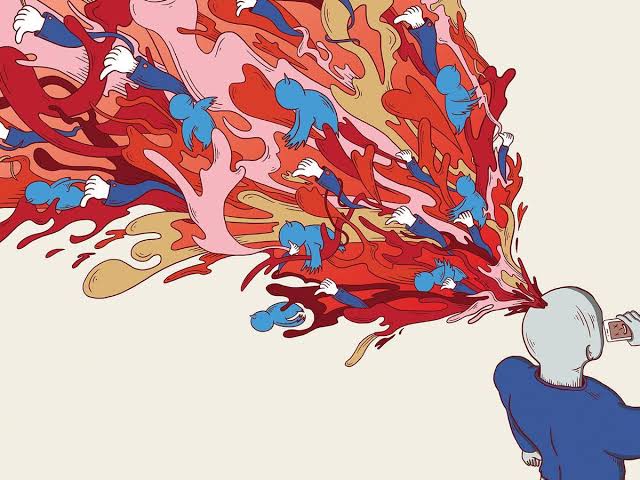
The need of providing proper care and treatment for mental illness is something like an elephant in the room- incredibly obvious yet incredulously ignored. Growing up and having no one normalize talking about the things that make you vulnerable, I hesitated to write an article about mental illness. For a long time, I didn’t even know if it was ok to address mental illness as a problem. Some people understand it, some think it’s a vain cry for attention. For me, it is like that pile of laundry that you don’t want in the background of your Instagram pictures. I never want to show my pile of laundry to the world– I want my life to seem happy and put together as if I folded and put away all my laundry right out of the dryer.
In 2011, WHO concluded that 36% of Indians suffered from a Major Depressive Episode (MDE) within their lifetime. That means India has the most number of people in the world who suffer from some form of depression at some point in their lives. The social pressure to be “normal” is symptomatic of a much bigger problem- the unhealthy stigma around mental health disorders and pressure against getting help.
The one thing that bugs most Indian young adults with any mental health disorder? The fact that the people they looked up to the most were the first to fail them.
Imagine, asking your mom one day if hearing and seeing things were normal. Her response?
“You’re too young and don’t know what REAL mental health problems are.”
Why didn’t she instead take you to a doctor? What is the right age to be mentally unwell?
This was my first introduction to the ‘social stigma’ regarding mental health.
The stigma to appear normal. Stigma to keep the family drama invisible. Stigma to protect family honor. Stigma to force yourself out of the need for help. Stigma to be stoic. Stigma to suffer more.
In India, this singular age-old social taboo regarding mental health is relevant for everyone. It cuts across the lines of gender, caste, religion, socio-economic class, and region. It reigns supreme in regulating people’s decisions because people’s vulnerabilities becoming public knowledge often invites judgment, gossip, and drama. It also suppresses much-needed psychological care.
Now coming to the bigger question- Why is the issue of mental health care so complex? The term encompasses a lot: from the more common, temporary, and acute moments of anxiety and depression to severe, chronic disorders such as schizophrenia or bipolar disease. It is inaccurate and unfair to put everything or everyone in one box.
The problem in India extends beyond your parents; when a person tries to reach out to even friends for help, pat comes the excuse disguised as advice – You need more sleep/ to stay off your phone.
Everyone wants to deny that there is a problem because acknowledging a problem means you will have to change things. And change is difficult. And chaotic. And near impossible for a society so set in its ways.
Knowing that I am a part of the same society that turns a blind eye to this kind of pain, it’s taken me even longer to trust people, to believe that people will reach out when I ask for help. That I won’t be told I’m too young or it’s because I’m tired or because I’m on my phone too much before going to sleep. I’ve realized this over the years that no one but me can choose whether or not what I’m dealing with is real. I don’t need someone to compare their own experiences to mine and validate my cry for help.
If the people around are more supportive, the bad episodes feel a little less heavy. The anxiety attacks, just that much less spirit-breaking. The illness, that much less debilitating.
Written by Ridhima Sharma for MTTN
Edited by Mihika Antonia Dean for MTTN
Featured image by Sharmelan Murugiah
Artwork from workingnotworking.com

Leave a Reply
You must be logged in to post a comment.